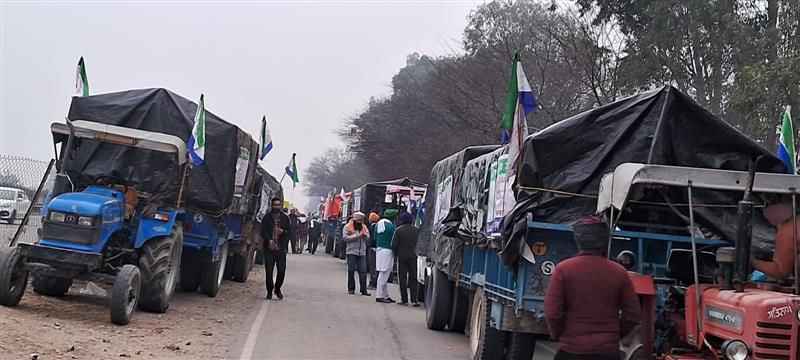Beyond politics, farming should be made profitable

Leaders of farm unions decided to go ahead with the ‘Dilli Chalo’ march after their marathon talks with a team of Union ministers ended on an inconclusive note, even as the Delhi Police invoked Section 144 of the CrPC, prohibiting the assembly of five or more people in the national capital till March 12. Upping the ante in the run-up to the Lok Sabha elections, the unions are exerting pressure on the Centre to accept their demands, which include the enactment of a law to guarantee a minimum support price (MSP) for all crops. The protesters are also seeking the implementation of the Swaminathan Commission’s recommendations, pensions for farmers and farm labourers, farm debt waiver, withdrawal of police cases and justice for victims of the 2021 Lakhimpur Kheri violence.
Staging a peaceful protest is a constitutional right of every citizen or group. In a democracy, this is a legitimate way for protesters to bring the government to the negotiating table. The year-long farmers’ agitation of 2020-21 was a watershed in India’s post-Independence history. Showing remarkable resilience and determination, the agitators had forced the Centre to repeal the three contentious farm laws. The ongoing protest, however, appears to be a political attempt to corner the government and browbeat it into acceding to their demands before the elections.
Farm unions should look at the larger picture instead of eyeing short-term gains. The MSP regime has largely remained confined to wheat and paddy, and that too in a few states. Legalising it across the country would only spur farmers to further step up the production of these crops. While this is crucial for food security, it can also have a deleterious effect on the water table, which is already under severe strain due to groundwater overextraction. The future of Indian agriculture is at stake. Various stakeholders need to jointly come up with a long-term action plan to ensure that farming remains viable and sustainable.
